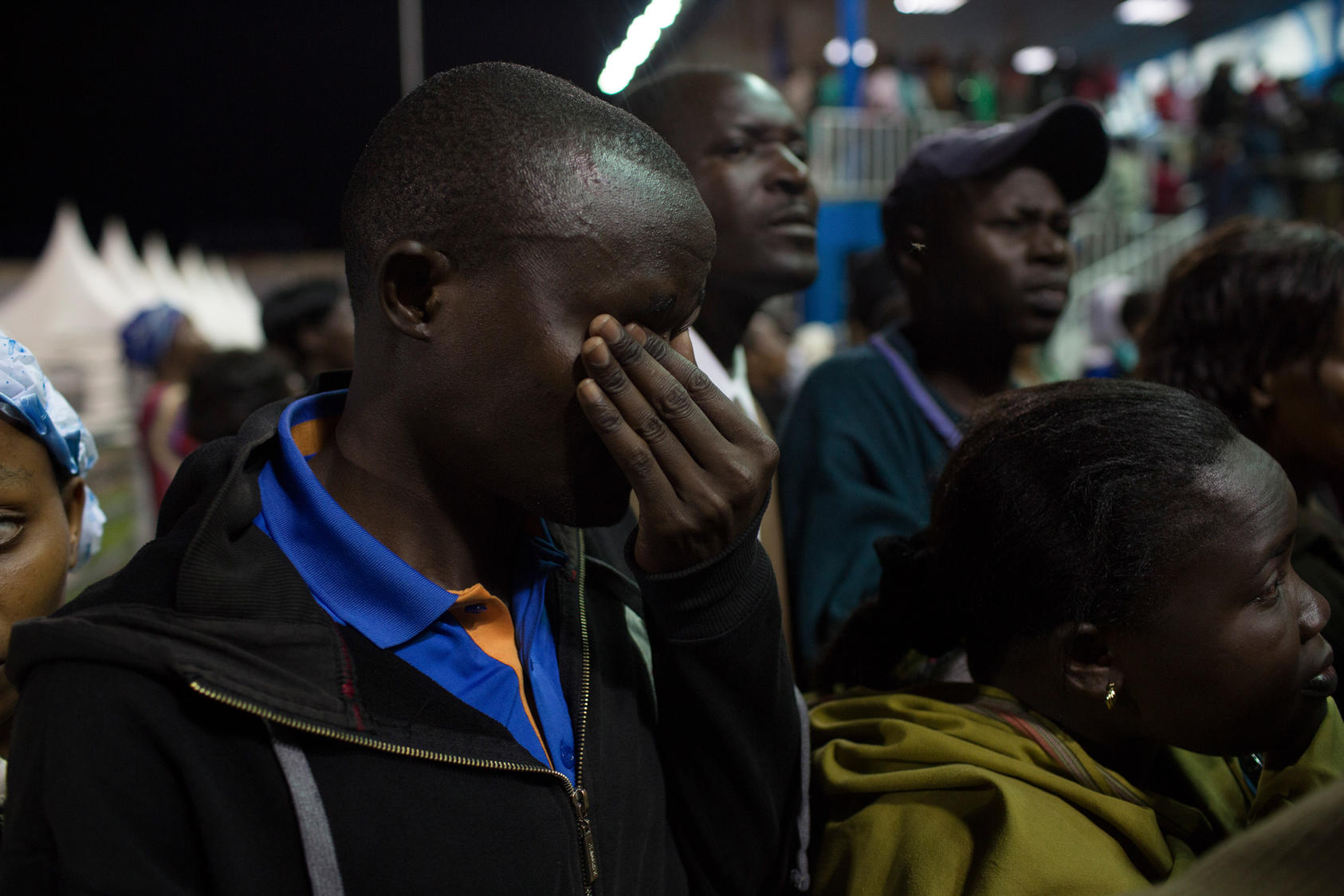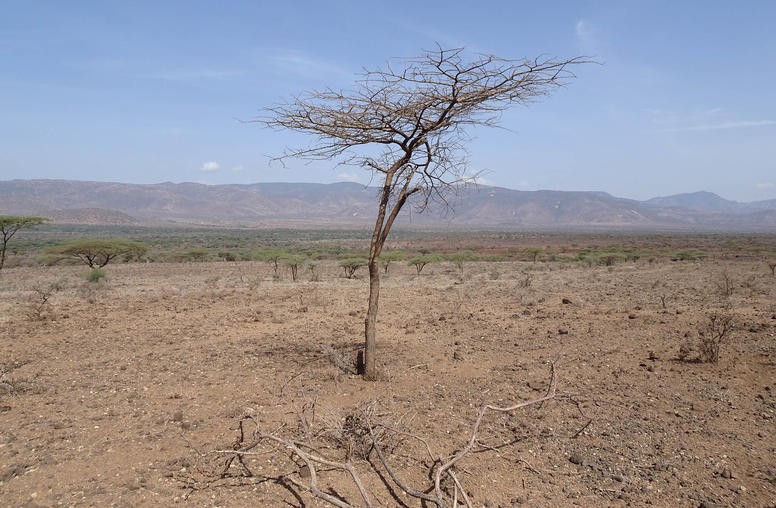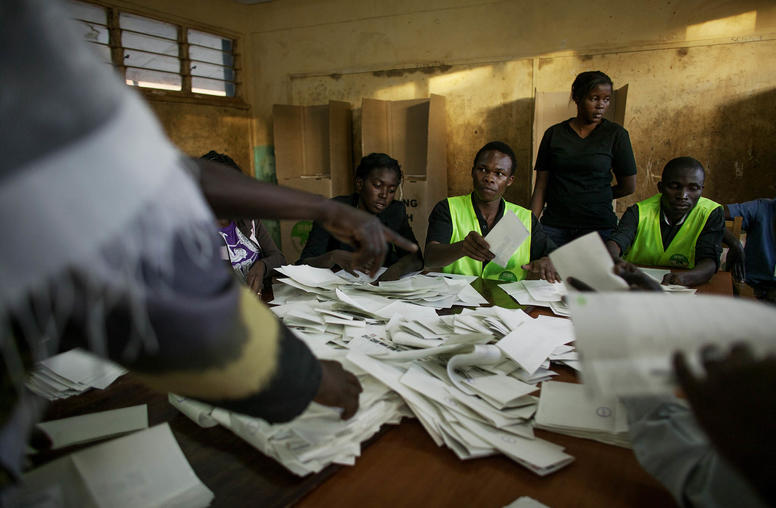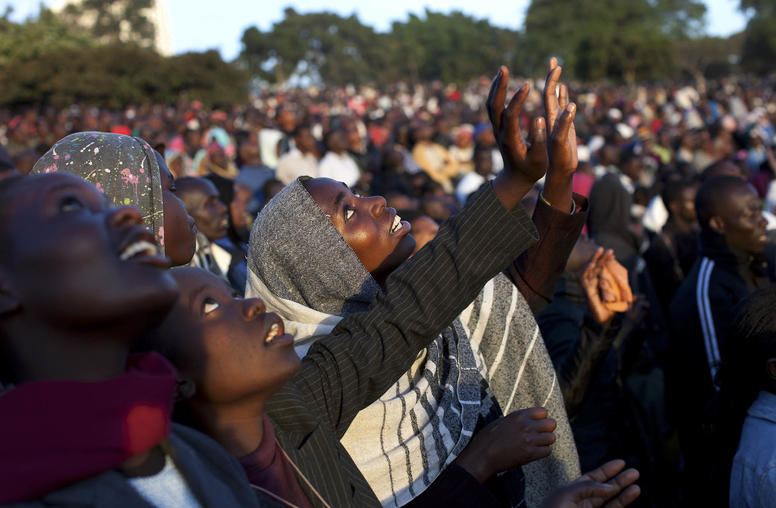Kenya Needs a Broad Strategy Against Al-Shabab
Nairobi Must Address Concerns of Muslim Kenyans, USIP Analysts Say
Kenya’s government must adopt a broader strategy to counter extremist violence such as last week’s attack by the militant group al-Shabab at Garissa University, according to two experts at the U.S. Institute of Peace. The attack killed at least 147 people, mostly students.

Ambassador Johnnie Carson, a former U.S. assistant secretary of state for Africa, and Jacqueline H. Wilson, a former Air Force officer who served as a military liaison to the U.S. Embassy in Nairobi, said Kenya must go beyond military responses to such attacks, so that the government can lower the risk of a further backlash and weaken al-Shabab’s appeal to Muslims who feel marginalized by Kenya’s ruling elites.
“Few of the government’s responses effectively address the underlying grievances of these communities.”
Al-Shabab, based across a porous eastern border in Somalia, has conducted several major attacks in Kenya in recent years, including the 2013 assault on the Westgate Mall in Nairobi that killed 67 people. The militant group, which says it aims to end Kenya’s role as part of the African Union peacekeeping mission in Somalia, increasingly recruits Kenyan Muslims, many with origins in the neighboring country. Since the Kenyan armed forces engagement inside Somalia began in 2011, al-Shabab has staged attacks in the northeastern Kenyan cities of Mandera, Wajir and Garissa, Wilson said. “Relative proximity to the border allows al-Shabab militants easy retreat for respite within Somalia,” she said.
Recent al-Shabab attacks in Kenya clearly have been aimed at sowing divisions between Christians, who make up 83 percent of Kenya’s population, and the 11 percent of Kenyans who are Muslim, according to a 2009 census. Several Kenyan Muslims reportedly were involved in the Garissa attack, in which most victims were Christian. After 28 non-Muslim passengers died in November in the al-Shabab hijacking of a bus ferrying school teachers in Mandera, teachers refused to return to school out of security fears. The pre-eminent Muslim organization in Kenya, the Supreme Council of Kenya Muslims, has called for citizens to resist religiously based provocations.
“Kenya must step up its counter-terrorism security programs, but it must also be very careful not to overreact and target innocent” Kenyans of Somali origin, said Carson, a senior advisor to the president of USIP. A failure to adopt a measured approach “will only increase local resentment and enable greater al-Shabab recruitment efforts among disaffected Kenyan Somalis, and also among non-Somali Muslim Kenyan citizens living in Mombasa and along the coast.”
Human Rights Watch reported in August that evidence indicates Kenyan security forces have been responsible for disappearances, extrajudicial killings, arbitrary arrests and mistreatment of prisoners. Wilson cited a case last year in which Kenyan security forces rounded up thousands of Somali Kenyans in a stadium to check for identity documents. Indeed, Kenyan President Uhuru Kenyatta announced after the Garissa attack a plan to immediately train 10,000 new police officers to increase security, the Los Angeles Times reported.
Government Neglect
Non-Somali Muslims in communities along Kenya’s coast also “feel the central government has done little to address their concerns about longstanding land grievances, high unemployment and the lack of schools and hospitals in their areas,” Carson said.
“Few of the government’s responses effectively address the underlying grievances of these communities,” said Wilson, a senior program officer in USIP’s Academy for International Conflict Management and Peacebuilding. “Kenyan responses to these terrorist attacks have been clumsy at best, destructive at worst,” she said. Wilson conducts training in Kenya and other countries to build skills needed for initiatives such as preventing electoral violence. USIP provides training, grants and other resources to Kenyans working for peace.
Al-Shabab also is an increasingly serious threat to Uganda, which also contributes troops to the African Union Mission in Somalia, Carson said. The group “has demonstrated its capacity to carry out high profile, mass-casualty attacks in both Nairobi at the Westgate Mall in September 2013 … and also in Kampala, Uganda, where al-Shabab carried out simultaneous suicide attacks on two restaurants in July 2010, killing over 70 people,” he said.
“This cycle of violence is not likely to end. Kenya’s security forces seem unable to defend its Somali border,” Wilson said, adding that, “until Kenya’s government finds a way to respond to its own citizens constructively, and Kenya’s Somali Muslims feel more affinity for Kenya than Somalia and/or al-Shabab, more attacks of this type are likely.”



